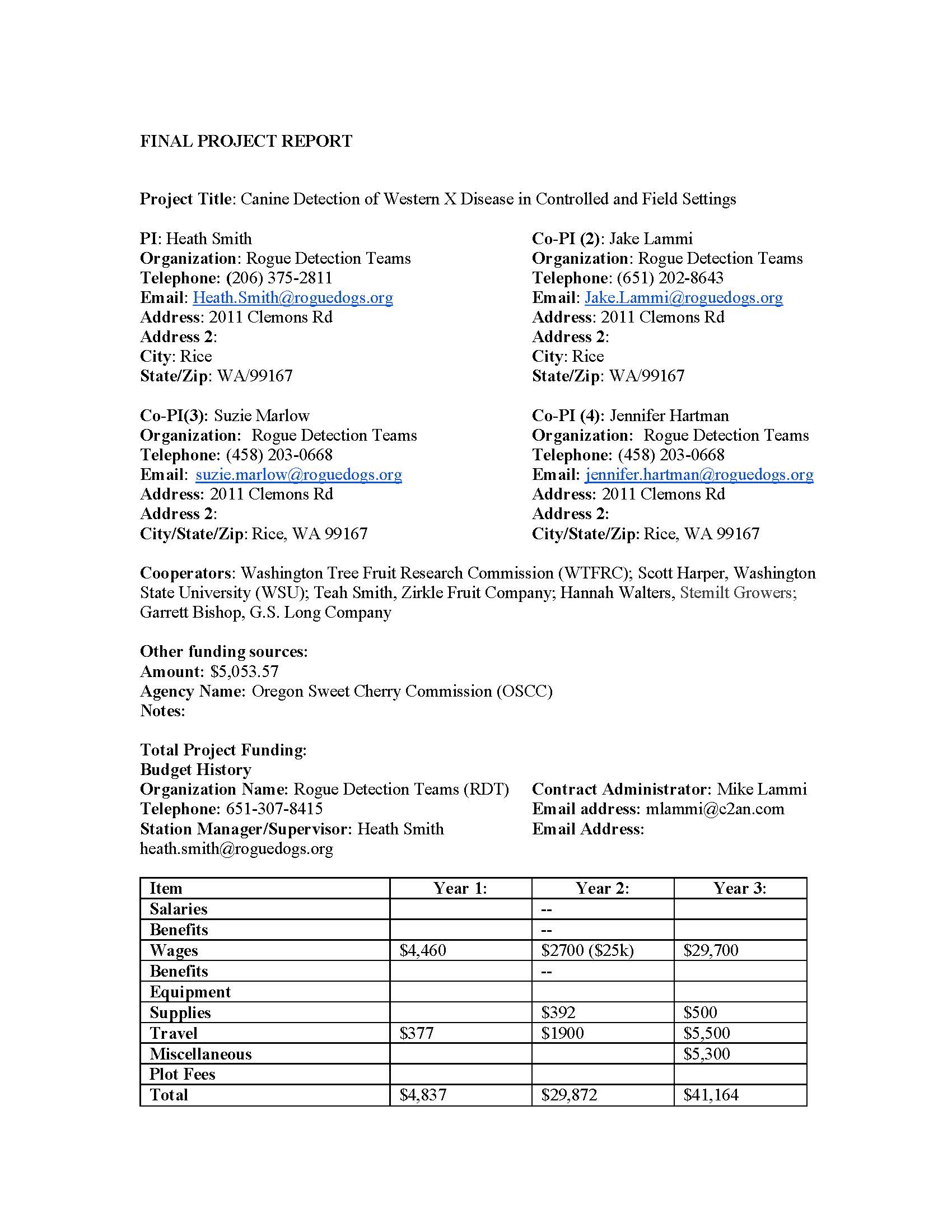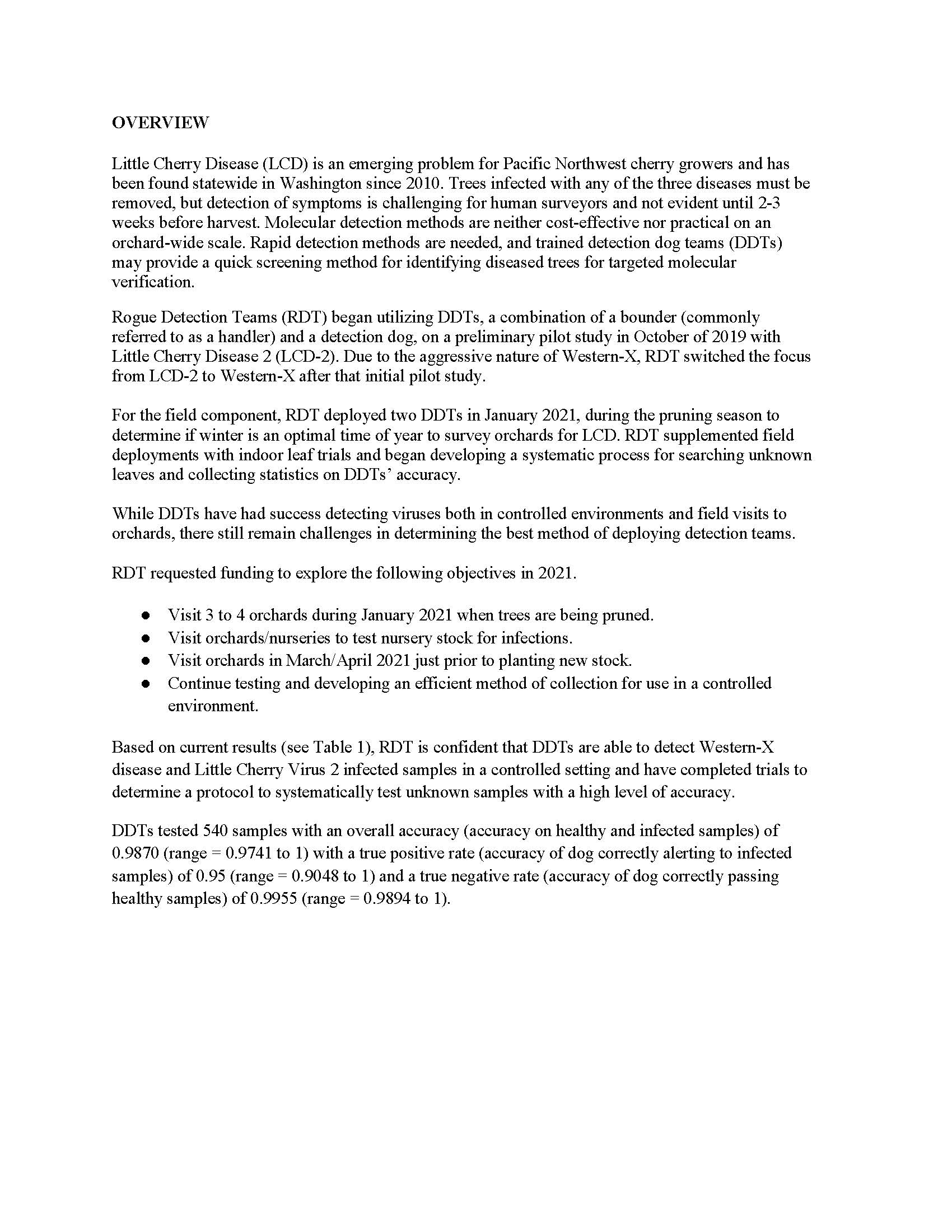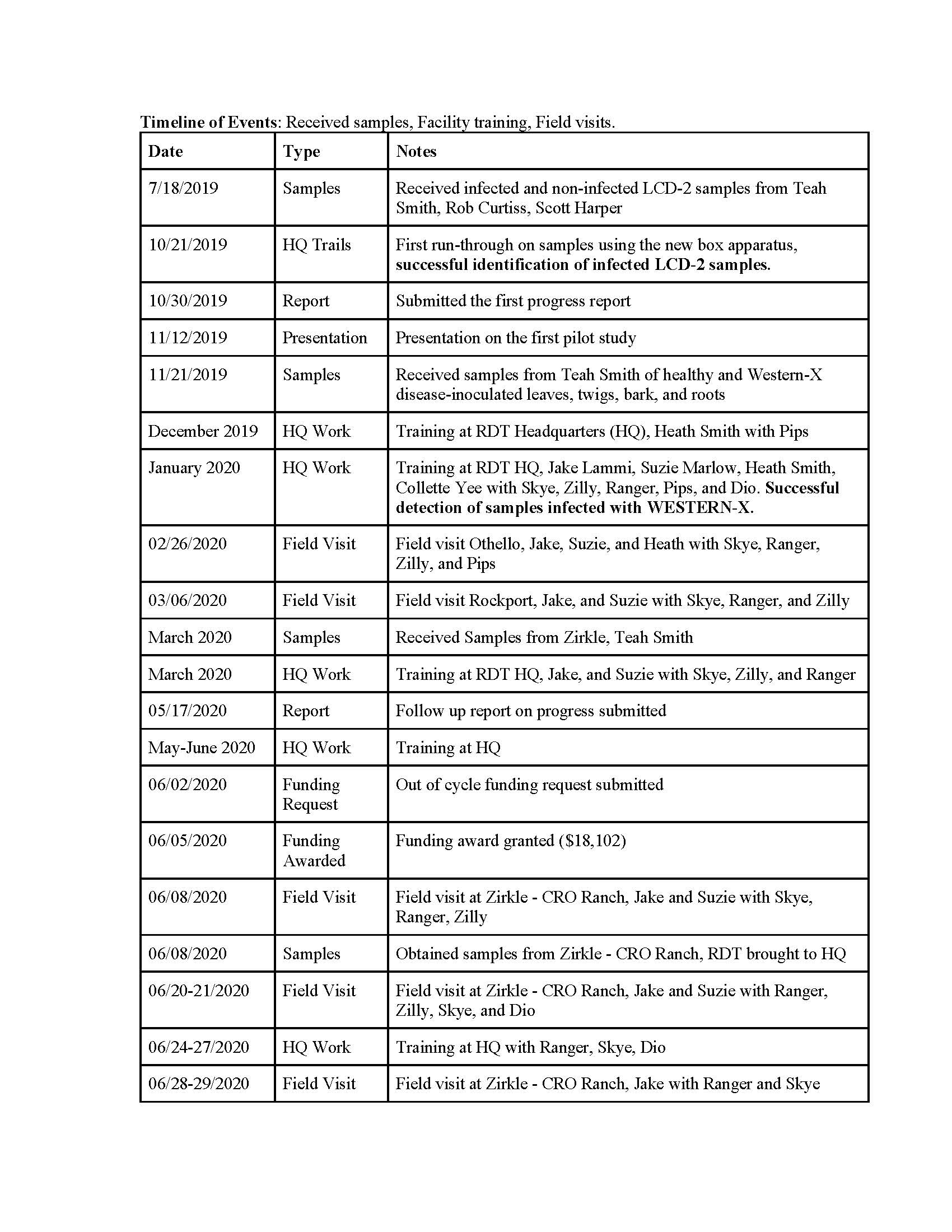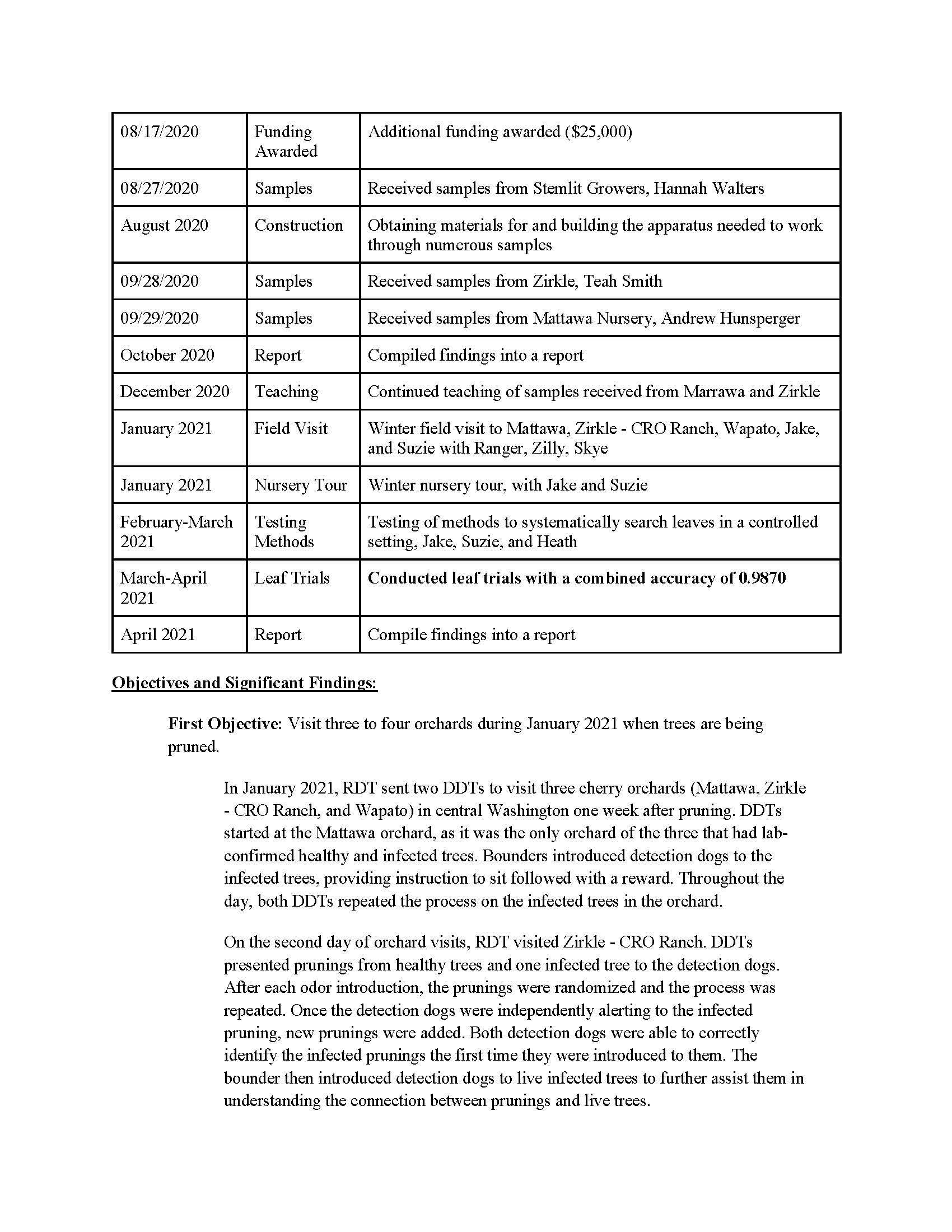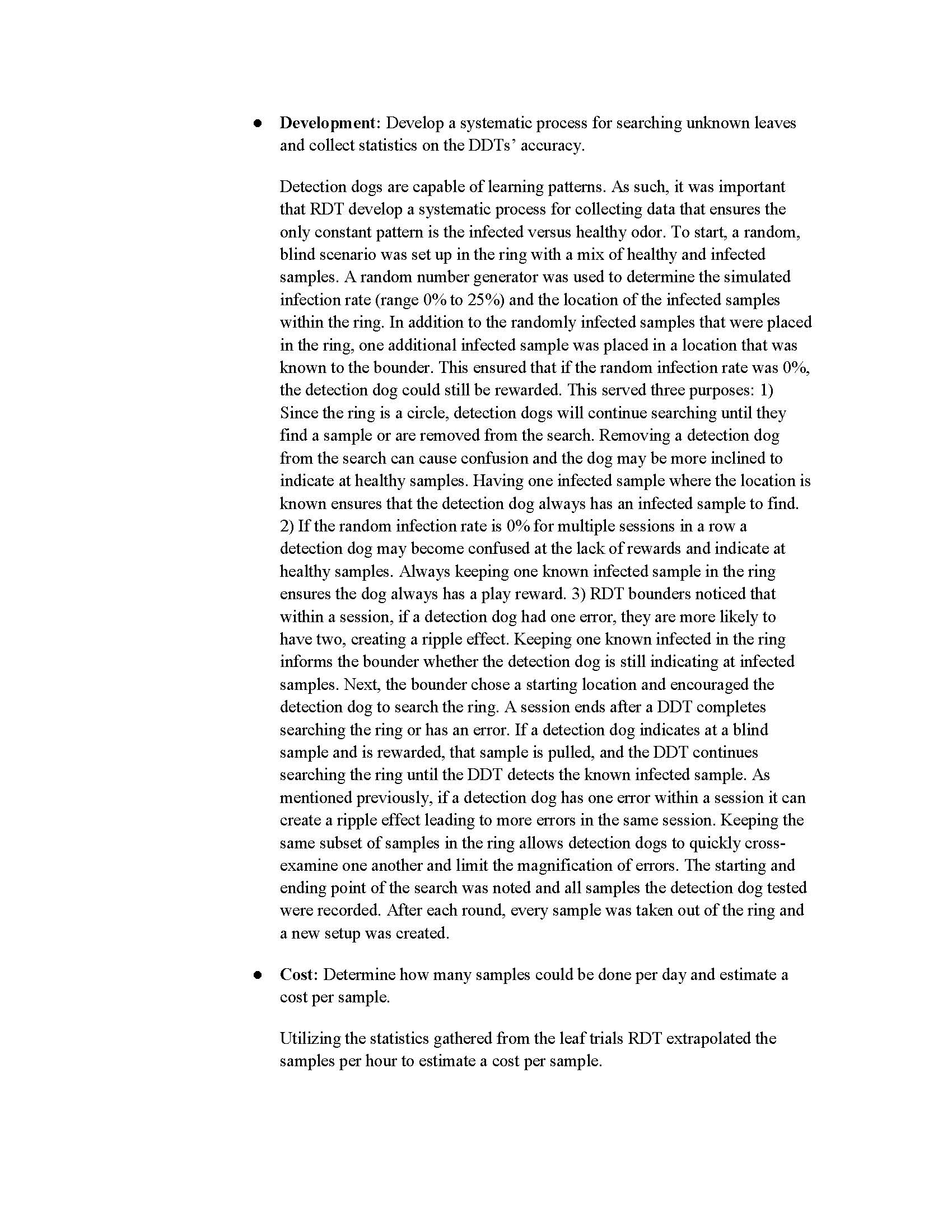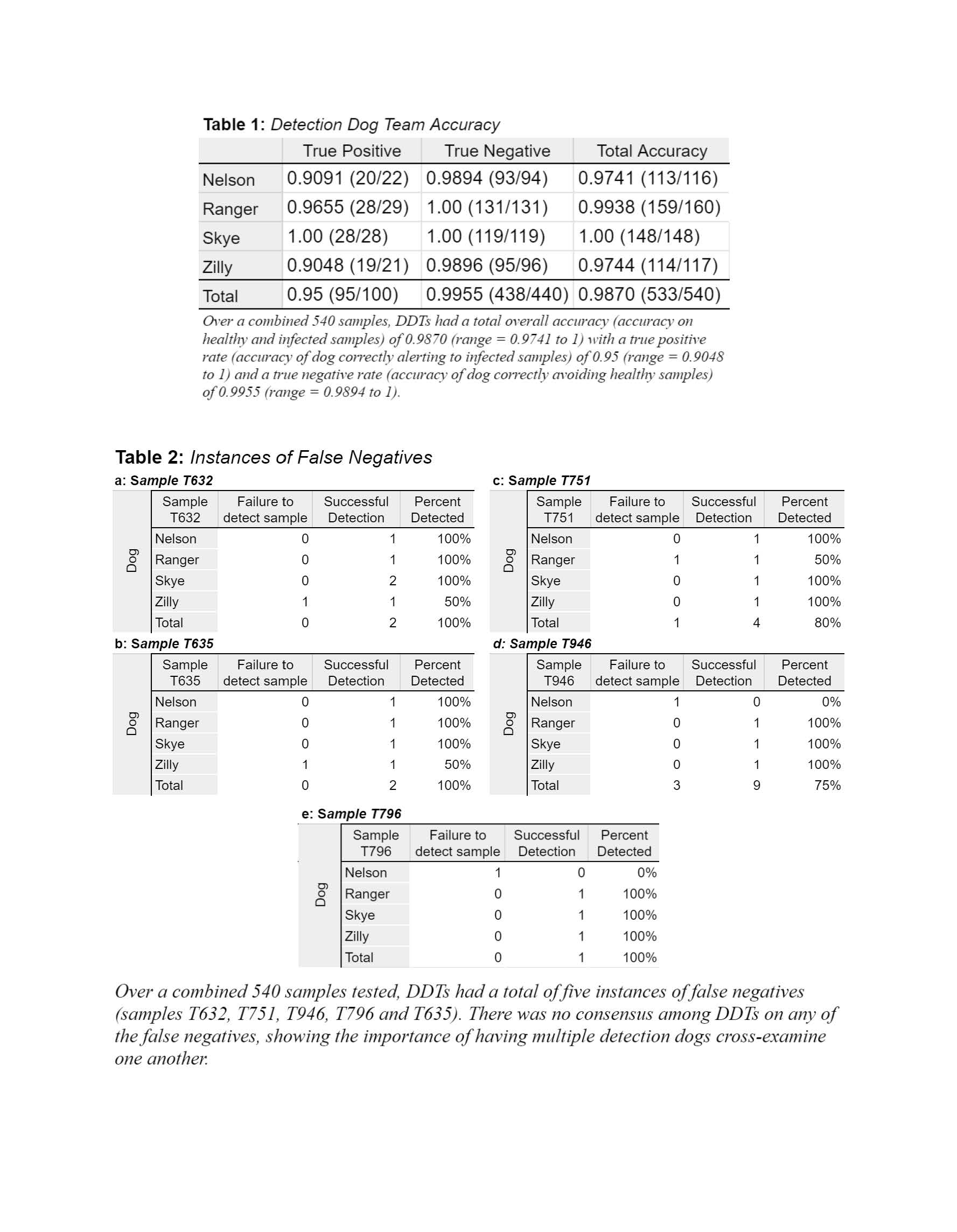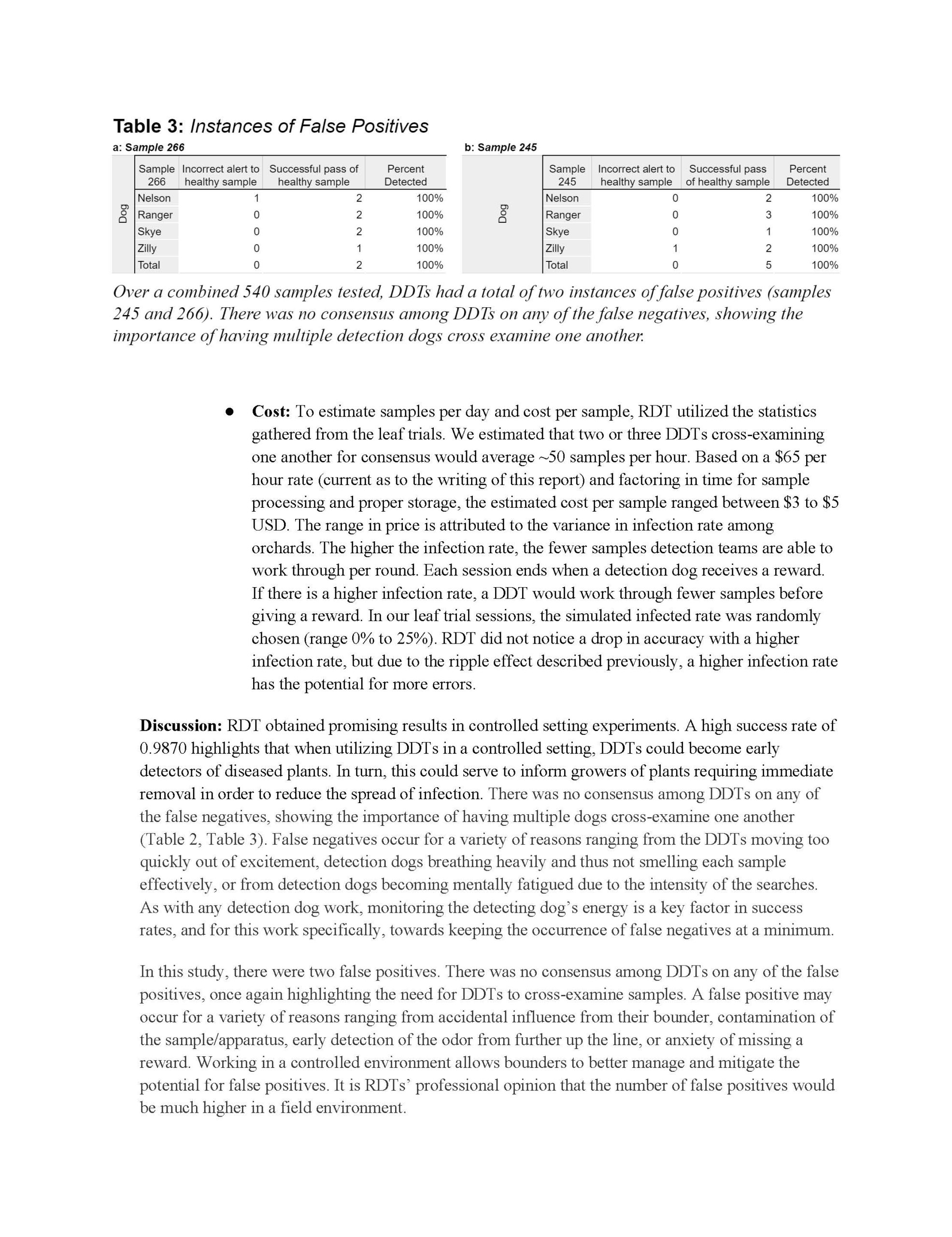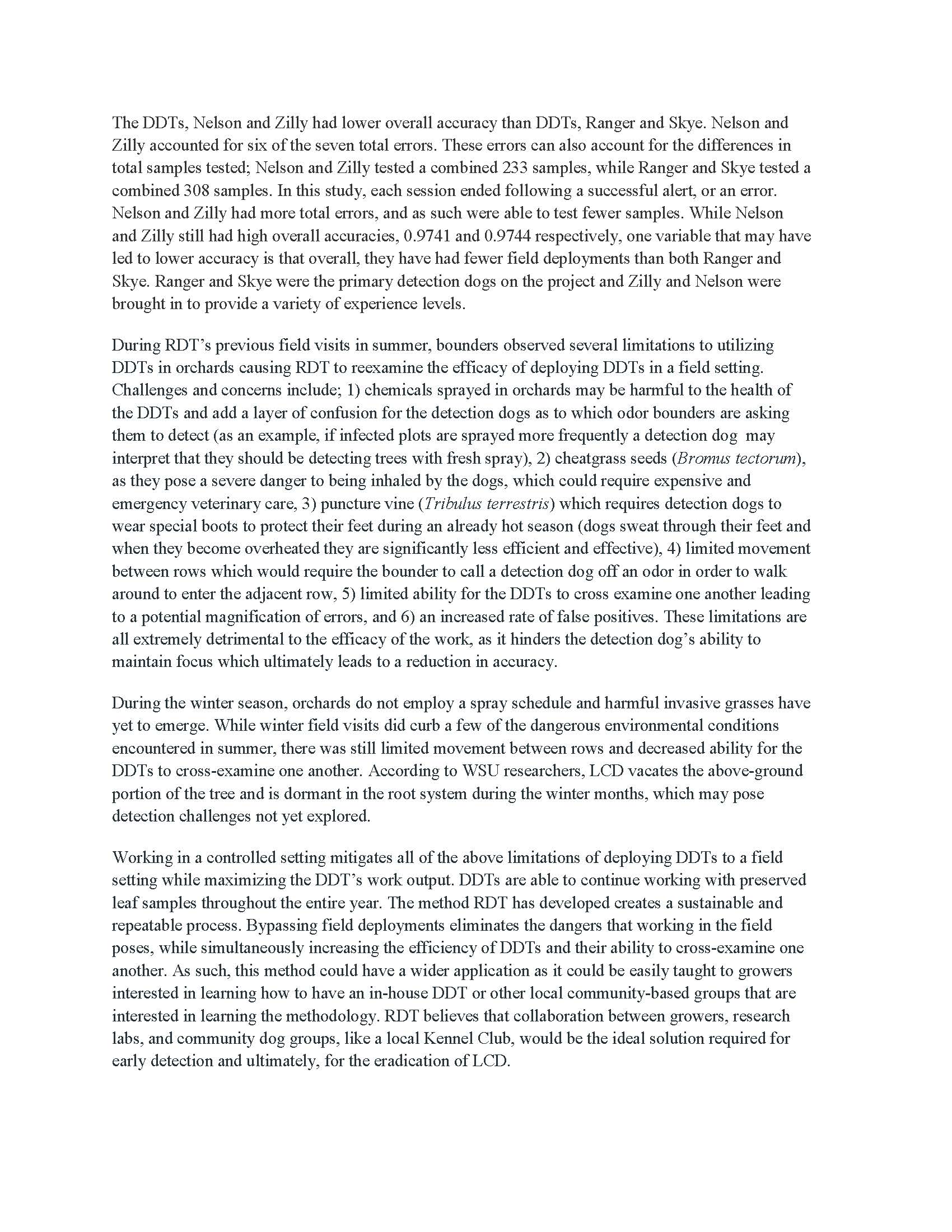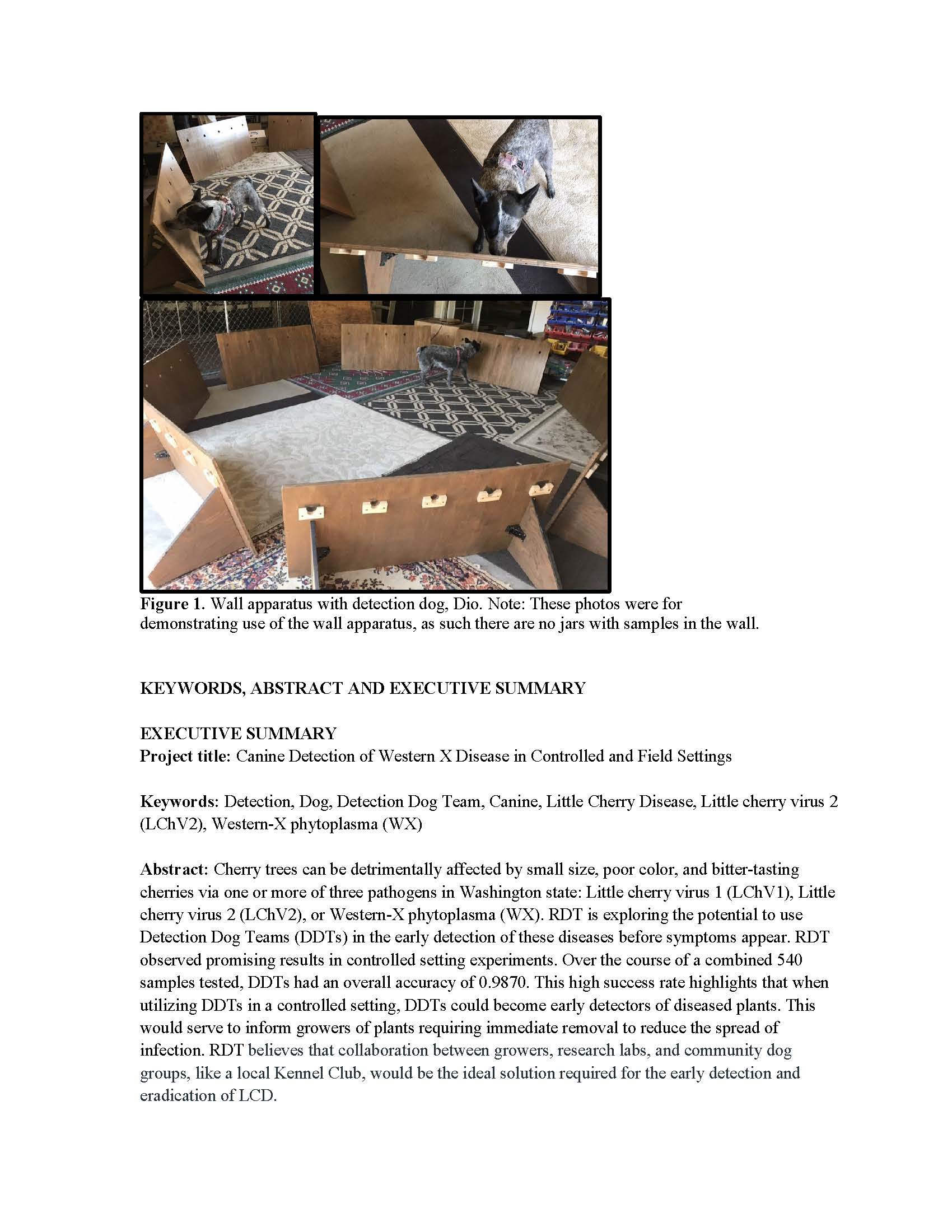Canine Detection of Western X Disease in Controlled and Field Settings
Author: Heath Smith, Jake Lammi, Suzie Marlow, Jennifer Hartman
Published: 2022
Summary: Cherry trees can be detrimentally affected by small size, poor color, and bitter-tasting cherries via one or more of three pathogens in Washington state: Little cherry virus 1 (LChV1), Little cherry virus 2 (LChV2), or Western-X phytoplasma (WX). RDT is exploring the potential to use Detection Dog Teams (DDTs) in the early detection of these diseases before symptoms appear. RDT observed promising results in controlled setting experiments. Over the course of a combined 540 samples tested, DDTs had an overall accuracy of 0.9870. This high success rate highlights that when utilizing DDTs in a controlled setting, DDTs could become early detectors of diseased plants. This would serve to inform growers of plants requiring immediate removal to reduce the spread of infection. RDT believes that collaboration between growers, research labs, and community dog groups, like a local Kennel Club, would be the ideal solution required for the early detection and eradication of LCD.
Keywords:

